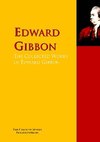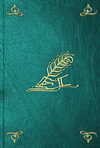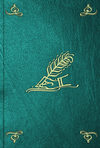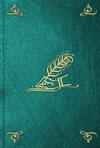Loe raamatut: «Private Letters of Edward Gibbon (1753-1794) Volume 1 (of 2)», lehekülg 27
320.
To J. B. Holroyd, Esq
Paris, August the 11th, 1777.
*Well, and who is the Culprit now? – Thus far I had written in the pride of my heart, and fully determined to inflict an Epistle upon you, even before I received any answer to my former; I was very near a Bull. But this forward half line lay ten days barren and inactive, till its generative powers were excited by the missive which I received yesterday.
NO IMMEDIATE RISK OF FRENCH WAR.
What a wretched piece of work do we seem to be making of it in America! The greatest force which any European power ever ventured to transport into that Continent, is not strong enough even to attack the enemy; the Naval strength of Great Britain is not sufficient to prevent the Americans (they have almost lost the appellation of Rebels) from receiving every assistance that they wanted; and in the mean time you are obliged to call out the Militia to defend your own coasts against their privateers.369 You possibly may expect from me some account of the designs and policy of the French Court, but I chuse to decline that task for two reasons: 1st, Because you may find them laid open in every newspaper; and 2ndly, Because I live too much with their Courtiers and Ministers to know anything about them. I shall only say that I am not under any immediate apprehensions of a War with France. It is much more pleasant as well as profitable to view in safety the raging of the tempest, occasionally to pick up some pieces of the Wreck, and to improve their trade, their agriculture, and their finances, while the two countries are lento collisa duello. Far from taking any step to put a speedy end to this astonishing dispute, I should not be surprized if next summer they were to lend their cordial assistance to England, as to the weaker party. As to my personal engagement with the D[uke] of R[ichmond], I recollect a very few slight skirmishes, but nothing that deserves the name of a general engagement. The extravagance of some disputants, both French and English, who have espoused the cause of America, sometimes inspires me with an extraordinary vigour. Upon the whole, I find it much easier to defend the justice than the policy of our Measures; but there are certain cases, where whatever is repugnant to sound policy ceases to be just.
The more I see of Paris, the more I like it.370 The regular course of the Society in which I live is easy, polite, and entertaining; and almost every day is marked by the acquisition of some new acquaintance, who is worth cultivating, or who, at least, is worth remembering. To the great admiration of the French, I regularly dine and regularly sup, drink a dish of strong Coffee after each meal, and find my stomach a citizen of the World. The Spectacles, (particularly the Italian, and above all the French Comedie) which are open the whole summer, afford me an agreeable relaxation from Company; and to shew you that I frequent them from taste only, and not from idleness, I have not yet seen the Colisee, the Vauxhall, the Boulevards, or any of those places of entertainment which constitute Paris to most of our Countrymen. Occasional trips to dine or sup in some of the thousand Country-houses which are scattered round the environs of Paris, serve to vary the scene. In the mean while the summer insensibly glides away, and the fatal month of October approaches, when I must exchange the house of Madame Necker for the house of Commons.
PARIS BECOMING EMPTY.
I regret that I could not chuse the winter, instead of the Summer, for this excursion: I should have found many valuable persons, and should have preserved others whom I have lost as I began to know them. The Duke de Choiseul, who deserves attention both for himself, and for keeping the best house in Paris, passes seven months of the year in Touraine; and though I have been tempted, I consider with horror a journey of sixty leagues into the Country. The Princess of Beauvau* (by the bye Beauveau, fine calf, is an orthography worthy of a Sussex farmer), the Princess of Beauvau, *who is a most superior Woman, has been absent above six weeks, and does not return till the 24th of this month. A large body of Recruits will be assembled by the Fontainbleau journey; but in order [to] have a thorough knowledge of this splendid Country, I ought to stay till the month of January; and if I could be sure that opposition would be as tranquil as they were last year —
I think your life has been as animated, or, at least, as tumultuous, and I envy you Lady Payne,371 and Lady Dy, &c. much more than either the Primate,372 or the Chief Justice.373 Let not the generous breast of Mylady be torn by the black serpents of envy. She still possesses the first place in the sentiments of her slave: but the adventure of the fan was a mere accident, owing to Lord Carmarthen. Adieu. I think you may be satisfied. I say nothing of my terrestrial affairs.* Good works are unnecessary, as I can only hope to be justified by my faith in the merit of my Redeemer John Holroyd.
321.
To his Stepmother
Hotel de Modene à Paris, September the 1st, 1777.
Dear Madam,
I must either write ten lines or twenty pages, and you will easily judge which I shall prefer. The various sets of company with whom I pass my time are so completely strangers to you, that before I mentioned any person of my acquaintance I must introduce them with a very tedious yet imperfect account of their birth, parentage, education and character. After all, what would principally interest the curiosity of friendship may be dispatched in two words —I am well and happy. Mr. Necker has not yet discovered any signs of jealousy, and I supped last night between two Arch-bishops who, I am persuaded, have not the least intention of solliciting a lettre de cachet to send me to the Bastille. I only regret that it was not possible to choose another season of the Year for my Expedition. In summer Paris is very far from being a desert like London, and I have the daily pleasure of living in a very numerous and agreeable Society, yet as there is always a considerable emigration into the provinces I am sensible that many valuable acquisitions have escaped me. In the first or second week of October the Court goes to Fontainebleau, and as it is never so full and splendid as in that place, I propose passing a few days there. I must afterwards allow myself a little space to thank and embrace my Paris friends: and shall return by the first of November to a very different scene of things in London.
You will not be sorry to hear that, though I love the French from inclination and gratitude, I have by no means lost my relish for my native country. I have spent so much time in gay dissipation, that I must set myself in good earnest to work; but you may depend on my desire to steal a few days of the Christmas recess for a Bath expedition. I fancy we shall have a busy Session of Parliament, and unless Howe has very decisive success we shall be less unanimous for the design of conquering America. I will not trouble you with politics, but will only venture to assure you, that, in the present moment, the French Counsels are seriously inclined for peace. My friend Necker (for I now esteem and love him on his own account) is declared principal minister of the finances, and though he has great obstacles to contend with, his knowledge, his firmness, and the purity of his intentions ought to make us wish for his disgrace.
I am, Dear Madam,Ever yours,E. Gibbon.
322.
To J. B. Holroyd, Esq
Bentinck Street, Nov. 4th, 1777.
A MARTYR TO GOUT.
I arrived last night, laid up with the gout in both my feet. I suffer like one of the first Martyrs, and possibly have provoked my punishment as much. If you wish to see me, come to town before the meeting. I hope my Lady will not laugh.
323.
To his Stepmother
Bentinck Street, November 4th, 1777.
Dear Madam,
When you hear the reason, you will excuse my telling you in two words that I arrived last night. I am laid up with a very painful fit of the gout in both my feet. I came over from Calais with some difficulty; yet I rejoice that I am in my own library, and three hundred miles nearer you than I was a week ago. I think it cannot last long.
I am, Dear Madam,Most truly,E. G.
324.
To J. B. Holroyd, Esq
[Bentinck Street,] Saturday, [November, 1777.]
*Had you four horns as well as four eyes and four hands, I should still maintain that you are the most unreasonable Monster in the Creation. My pain is lively, my weakness excessive, the season cold, and only twelve days remain to the meeting. Far from thinking of trips into the Country, I shall be well satisfied if I am on my legs the 20th, in the medical sense of the word. At present I am a Corpse, carried about by four arms which do not belong to me. Yet I try to smile: I salute the hen and chickens. Adieu. Writing is really painful.*
325.
To his Stepmother
Bentinck Street, Nov. 13th, 1777.
Dear Madam,
As my disorder was perfectly free from danger, I thought it needless to repeat every post, that I was in a good deal of pain: but I seize the first opportunity of telling you that the enemy appears to be raising the siege, and that he makes a regular and gradual retreat: the pain is gone, the swellings diminished, my strength is returning; this morning for the first time I enjoyed the luxury of using crutches, and I aspire to the superior luxury of throwing them away. In the course of my recovery you may depend on my prudence. Adieu! dear Madam, I sincerely envy your loving couple: but be pleased to remember that they are only twenty.
I amMost truly yours,E. Gibbon.
326.
To J. B. Holroyd, Esq
Friday, November 14th, 1777.
*I do not like this disorder on your eyes: and when I consider your temperance and activity, I cannot understand why any spring of the machine should ever be deranged. With regard to myself, the Gout has behaved in a very honourable manner; after a compleat conquest, and after making me feel his power for some days, the generous Enemy has disdained to abuse his victory or torment any longer an unresisting victim. He has already ceased to torture the lower extremities of your humble servant; the swelling is so amazingly diminished that they are no longer above twice their ordinary size. Yesterday I moved about the room with the laborious majesty of crutches; to-day I have exchanged them for a stick; and by the beginning of next week, I hope, with due precaution, to take the air and to inure myself for the interesting representation of Thursday. How cursedly unlucky! I wanted to see you both; a thousand things to say and to hear, and every scheme of that kind broke to pieces. If you are not able to come to Bentinck Street, I must contrive to steal three or four vacant days during the Session, and run down to Sheffield. The town fills, and I begin to have numerous levers and couchers, more properly the latter. We are still in expectation, but in the mean while we believe (I mean Ministers) that the news of Howe's victory and the taking of Philadelphia are true.374 Adieu.*
327.
To J. B. Holroyd, Esq
Saturday Night, 30th November, 1777.
Your feaver, rhumatism, confinement and the use of a strange hand make me very uneasy. If I thought I could be of any use, I would in spite of Parliament375 immediately run down; but I do most heartily advise, beg and intreat that, as soon as you are fit for motion, you would come to town, and consult about the best method of putting an end to this tedious complaint. For myself, I have almost forgot the gout. No alteration as to the public: Much debating, little hopes and no news. Your Inn business I will skilfully manage either in person, or by my faithful Minister, and you may depend on the earliest account of it. You asked about the Highlander: he is still in his mountains. I fear Mrs. G. expects me at Christmas, but I really prefer Sheffield, and will try to defer the Bath journey till Easter. Do not however reckon upon my success. Adieu.
328.
To J. B. Holroyd, Esq
Monday night, December, 1777.
WEARY OF THE WAR.
*I congratulate your noble firmness, as I suppose it must arise from the knowledge of some hidden resources which will enable us to open the next Campaign with new armies of 50 or 60,000 men. But I believe you will find yourself obliged to carry on this glorious War almost alone. It would be idle to dispute any more about politics, as we shall so soon have an opportunity of a personal combat. Your journey gives me some hopes that you have not entirely lost your reason.* Your bed shall be ready. Caplin has conversed with your Tenant, but his demands were certainly excuses, as he has given over all thoughts of the enterprize: possibly you may be more successful. Adieu. I do not embrace My lady, as she seems to decline accompanying you. Her conduct is shameful and unnatural.
329.
To J. B. Holroyd, Esq
December 2nd, 1777.
By the enclosed you will see that America is not yet Conquered. Opposition are very lively,376 and though in the house we keep our numbers, there seems to be a universal desire of peace even on the most humble conditions. Are you still fierce?
330.
To J. B. Holroyd, Esq
House of Commons, Thursday, Dec. 4th, 1777.
SARATOGA.
Dreadful news indeed. You will see them partly in the papers, and we have not yet any particulars. An English army of nearly 10,000 men laid down their arms and surrendered prisoners of war, on condition of being sent to England and of never serving against America.377 They had fought bravely, and were three days without eating. Burgoyne is said to have received three wounds. General Frazer378 with 2000 men, killed. Colonel Ackland379 likewise killed. A general cry for peace. Adieu. We have constant late days.
331.
To his Stepmother
Bentinck Street, December 16th, 1777.
Dear Madam,
DESPAIRS OF COERCING AMERICA.
I flatter myself that my long silence must have given you great satisfaction. You recollect that while I was under the tyranny of the Gout, I showed myself tolerably exact in sending you intelligence of my situation and improvement. From my silence therefore, you must have concluded that I am, now, as indeed I am, restored to public health, and once more engaged in the busy as well as idle dissipations of this great town. I jumped at once from a sick chair into the warmest debates, which I ever remember in my short parliamentary life. They have constantly been fed by our miserable news from America, and the Session after the holydays will be taken up by Committees on the state of the Nation, Enquiries into the conduct of Ministers and Generals, &c., which will at least serve to increase the public ferment. What will be the resolutions of our Governors I know not, but I shall scarcely give my consent to exhaust still further the finest country in the World in the prosecution of a war from whence no reasonable man entertains any hopes of success. It is better to be humbled than ruined.
Half my acquaintance, Lady Dy, Lady Payne, the Solicitor General,380 &c., are running down to Bath for the holydays. Had I no other inducement I should certainly escape from the crowd, and employ that short interval of quiet in resuming my long neglected History. Those literary occupations however I would gladly sacrifice to the pleasure of seeing you, but I apprehend I shall be engaged to prefer the Sussex to the Bath journey by some reasons which I will fairly submit to your judgement.
1. Holroyd, as you must have learned from his sister, is in a very indifferent state of health. His eyes are affected, his spirits are low, he has been disappointed of other company and he entreats me in a very moving way not to abandon him on this occasion.
2. I wish to pass some time with him on my own account, and to consult him with regard to Buriton, which is, I fear, very indifferently treated by my tenant Winton.
3. I expect, without knowing the day, a French lady of quality, Madame de Genlis,381 to whom I have very great obligations. Whenever she informs me of her arrival in London, I must instantly fly (on the wings of mere friendship) to receive and attend her: now it would be somewhat vexatious to travel an hundred and ten miles, and to be called away the next day. Determine for me, my dear friend, you have every tye upon me of promise, of gratitude and of inclination. If you are not perfectly satisfied with my positive engagement to pass the Easter recess with you, depend upon it I will break through every difficulty that detains me at present. I have a thousand things to hear and say, and I know that you will enjoy, what I could not perhaps say to others without incurring the censure of vanity. If the Goulds are at Bath, I beg to be remembered to them. I see your friend Mr. Melmoth382 has published a translation of another piece of Tully: on a subject which you understand at least as well as either of them. It will be worth your reading, for the treatise is valuable and he is an elegant as well as faithful translator.
I am, Dear Madam,Ever yours,E. G.
332.
To his Stepmother
Sheffield Place, December the 26th, 1777.
Dear Madam,
I arrived yesterday at Sheffield Place to enjoy the beauties of the country, which are displayed in a profusion of rain, snow and fogs. I think I never saw the Landlady in better looks, health or spirits. With regard to the Landlord, the principal object of this cold expedition, his eyes are somewhat better, and I flatter myself that the conversation of a friend will contribute to enliven him. I admire your fortitude, but I assure you that my despondency was not occasioned by the misfortunes of Bourgoyne and his gallant troops. It is founded on a very full consideration of a plan, the difficulties of which present themselves every day in a stronger light. What must be the means or the instruments to extricate us from this melancholy situation still remain to be considered with the most serious and dispassionate attention.
I am, dear Madam,Most truly yours,E. G.
The family desired to be remembered to you.
333.
To J. B. Holroyd, Esq
Saturday night, 1778.
The Gib is half astounded and half disappointed at the Revolution. He thinks (at present) that he shall appear in person at S. P. either Monday or Tuesday next to require an explanation. London is a dead calm and delicious solitude. If some people would send for the Eliza all might be forgiven. Adieu.
E. G.
Tuesday next will certainly produce his presence or an Epistle.
334.
To J. B. Holroyd, Esq
1778.
For Tuesday read Wednesday. I think I may reach S. P. by dinner time; but do not wait. My Lady's inconstancy disarranges me much, but it is far better that I should be disarranged, than that her gentle spirit should be grieved. Yet, why cannot she live quiet, and solitary at Brighton?
335.
To J. B. Holroyd, Esq
Monday night, January 26th, 1778.
What can I say? No news or business. Lord G.'s great misfortune has procured him a respite.383 We shall soon have something of a brush to-morrow on his first appearance.384 Lord N. seems in high spirits: we hear no more of conciliatory propositions. I received to-day a huge pacquet, a Theological answer written by a mere Irish parson.385 Adieu. I embrace my Lady, and wait with impatience. I hope your eyes are not the worse for a little fatigue. I love a dutiful aunt. It is now half an hour past nine. I have been hard at work since dinner, and am just setting out for Lady Payne's Assembly, with half the fine Bs at it, after which, I shall perhaps sup with Charles, &c., at Almack's.
336.
To J. B. Holroyd, Esq
Feb. 23, 1778.
*You do not readily believe in præternatural miscarriages of letters; nor I neither. Listen, however, to a plain and honest narrative. This morning after breakfast, as I was ruminating on your silence, Thomas, my new footman, with confusion in his looks, and stammering on his tongue, produced a letter reasonably soiled, which he was to have brought me the day of his arrival, and which had lain forgotten from that time in his pocket. To shorten as much as possible the continuance, I immediately inquired, whether any method of conveyance could be devised more expeditious than the post, and was fortunately informed of your Coachman's intentions.* In your observations on the opposition, &c., I desiderate somewhat of your usual moderation. I suppose you imagine that a reluctant effort of reason is at once to efface past errors, to command present acquiescence, and to inspire future confidence.
ATTEMPTS AT CONCILIATION.
*You probably know the heads of the plan; an act of parliament, to declare that we never had any intention of taxing America: another act, to empower the Crown to name commissioners, authorized to suspend hostilities by sea and land, as well as all obnoxious acts; and, in short, to grant every thing, except Independence.386 Opposition, after expressing their doubts whether the lance of Achilles could cure the wound which it had inflicted, could not refuse their assent to the principles of conduct which they themselves had always recommended. Yet you must acknowledge, that in a business of this magnitude there may arise several important questions, which, without a spirit of faction, will deserve to be debated: whether Parliament ought not to name the Commissioners? whether it would not be better to repeal the obnoxious acts ourselves? I do not find that the World, that is, a few people whom I happen to converse with, are much inclined to praise Lord N.'s ductility of temper. In the service of next Friday,387 you will, however, take notice of the injunction given by the Liturgy: "And all the people shall say after the minister, Turn us again, O Lord, and so shall we be turned."
While we considered whether we shall negociate, I fear the French have been more diligent. It is positively asserted, both in private and in Parliament, and not contradicted by the Ministers, that on the 5th of this month a treaty of Commerce388 (which naturally leads to a war) was signed at Paris with the Independent States of America. What do you think of the tardyness of administration? Yet there still remains a hope that England may obtain the preference. The two greatest countries in Europe are fairly running a race for the favour of America;* and I fear our Lord has more bottom than foot. Adieu. Am not I very good? but you must not expect a repetition of such exalted Virtue. Your Eyes? I embrace My lady, &c. I have written to all: no answers. I will see Cadell.
I send you a parcel, that, as a member, I have just received.
"American privateers," writes Walpole, July 17, 1777, "infest our coasts; they keep Scotland in alarms, and even the harbour of Dublin has been newly strengthened with cannon." On August 7 the crew of a privateer landed at Penzance and plundered several farmers of their live stock. It was in the following year, April, 1778, that Paul Jones first harried the English and Scottish coasts.
[Закрыть]
In The Private Correspondence of David Garrick (vol. ii. pp. 255, 256) is printed a letter from Gibbon to Garrick, written from the "Hôtel de Modène, rue Jacob, Fauxbourg St. Germain," at Paris, and dated August 14th, 1777. Gibbon begins by thanking Garrick for a kindly mention of his name. "It is pleasant to find one's-self mentioned with friendship by those whom posterity will mention with admiration. Foreign nations are a kind of posterity, and among them you already reap the full reward of your fame." "You have reason," he continues, "to envy me, for I can truly declare that I reckon the three months which I have now passed in Paris among the most agreeable of my life. My connection with a house, before which the proudest of the Gallic nobles bow the knee, my familiar acquaintance with the language, and a natural propensity to be pleased with the people and their manners, have introduced me into very good company; and, different in that respect from the traveller Twiss, I have sometimes been invited to the same houses a second time. If besides these advantages your partiality should ascribe any others to your friend, I am not proud enough entirely to disclaim them. I propose to stay at Paris about two months longer, to hook in (if possible) a little of the Fontainebleau voyage, and to return to England a few days before the meeting of Parliament, where I suppose we shall have some warm scenes. You cannot surely be satisfied with the beginning, or rather no beginning, of the American campaign, which seems to elevate the enemies as much as it must humble the friends of Great Britain.
"At this time of year, the society of the Turk's-head" (in Gerrard Street, where the Literary Club met) "can no longer be addressed as a corporate body, and most of the individual members are probably dispersed; Adam Smith in Scotland; Burke in the shades of Beaconsfield; Fox, the Lord or the devil knows where, &c., &c. Be so good as to salute in my name those friends who may fall in your way. Assure Sir Joshua, in particular, that I have not lost my relish for manly conversation and the society of the brown table. I hope Colman has made a successful campaign. May I beg to be remembered to Mrs. Garrick? By this time she has probably discovered the philosopher's stone; she has long possessed a much more valuable secret, – that of gaining the hearts of all who have the happiness of knowing her.
"I am, dear Sir, most affectionately yours,"E. Gibbon."
[Закрыть]
Françoise Lambertine, daughter of Baron Kolbel, married, September 1, 1767, "a rich West Indian," Ralph Payne (knighted in 1771), a son of the Governor of St. Christopher's, and himself Governor of the Leeward Islands (1771-75). Sir Ralph represented various constituencies in Parliament from 1768 to 1799, and, with his wife, was prominent in London society. He was created Viscount Lavington. Lady Lavington survived her husband, who died in 1807, as Governor of Antigua and a bankrupt.
[Закрыть]
The Hon. Fred. Cornwallis, Archbishop of Canterbury.
[Закрыть]
Lord Mansfield, Chief Justice of the Court of King's Bench.
[Закрыть]
General (afterwards Sir William) Howe defeated Washington at Brandywine on September 11, 1777, and took possession of Philadelphia on the 27th.
[Закрыть]
The Parliamentary session opened on November 18.
[Закрыть]
Lord Chatham, in the House of Lords, moved an amendment to the address, that the army should be recalled, the late Acts rescinded, and every effort used to reunite with America. The same motion was made in the Lower House. But the amendments were rejected by large majorities in both Houses. On December 2, Fox moved for a committee of the whole House to inquire into the state of the nation, including the expenses and resources of the nation, the loss of men, the state of trade, the present situation of the war, our foreign relations, and the progress made by the Commissioners in bringing about peace. Lord North accepted the motion, and the committee sat for the first time on February 2, 1778. Parliament was adjourned from December 11, 1777, to January 20, 1778.
[Закрыть]
General Burgoyne, after capturing Ticonderoga, pushed forwards towards the Hudson River, intending to invade the United States from the side of Canada. His supplies began to fail. The American forces gathered at Saratoga, and after several days' fighting, surrounded the British troops, whose strength was reduced to three thousand five hundred men. On October 17, 1777, Burgoyne surrendered to General Gates.
[Закрыть]
Simon Fraser had served under Wolfe at Quebec with the Fraser Highlanders, and commanded a brigade during Burgoyne's campaign. Mortally wounded on October 7, 1777, he died October 8, and was buried, under a heavy fire, in one of the British redoubts.
[Закрыть]
John Dyke Acland, best known by the devotion of his wife, Lady Harriet, was wounded and taken prisoner at Saratoga (October 9). He died in October, 1778, from a cold caught at a duel on Bampton Down, in Devonshire. He was then M.P. for Callington, in Cornwall.
[Закрыть]
Wedderburn.
[Закрыть]
Stephanie Félicité Ducrest de St. Aubin (1746-1830) married, in 1761, the Comte de Genlis. Through her aunt, who was secretly married to the Duc d'Orléans, she became "gouvernante" to the duke's children by his first wife, a daughter of the Duc de Penthièvre, – Madame Adelaide, Louis Philippe, and three others. She was a voluminous and versatile writer. Her Adèle et Théodore was published in 1782. "J'eus une liaison assez intime," she says in her Mémoires (ii. 351), "avec M. Gibbon, auteur de la chute de l'empire romain, ouvrage anglais que nos philosophes ont beaucoup loué, parce qu'il renferme de très mauvais principes, mais qui est, a tous égards, un mauvais ouvrage, très diffus, sans vues nouvelles, et fort ennuyeux."
[Закрыть]
William Melmoth (1710-1799), "Pliny" Melmoth, as Miss Burney says he was nicknamed, was an author, commissioner of bankrupts, and a good classical scholar. In 1753 he published Cicero's Ad Familiares; in 1773, the De Senectute; and in 1777, the work referred to in the letter, De Amicitia.
[Закрыть]
Lady George Germain (formerly Miss Diana Sambrooke) died of the measles, January 15, 1778.
[Закрыть]
Gibbon voted against the Government (February 2) for Fox's motion, "That no more of the Old Corps be sent out of the Kingdom." The motion was rejected by 259 to 165.
[Закрыть]
Probably, A Reply to the Reasonings of Mr. Gibbon, etc., by Smyth Loftus, M.A., Vicar of Coolock. Dublin, 1778.
[Закрыть]
The Bills proposed by Lord North were: (1) "For removing all doubts and apprehensions concerning taxation by the Parliament of Great Britain in any of the Colonies;" (2) for the appointment of five commissioners to treat with the Colonies. By the first the claim of taxation was abandoned. A third Bill, for the express repeal of the Massachusetts Charter Act, was also supported by the Government. The three Bills received the royal assent on March 11, 1778. Walpole, writing to Mason, February 18th, 1778, says, "You perhaps, who have all ecclesiastical history at your finger-ends, may recollect something approaching to the transaction of yesterday, the 17th of February, a day of confession and humiliation that will be remembered as long as the name of England exists. Yesterday, Feb. 17th, did the whole Administration, by the mouth of their spokesman, Lord North, no, no, not resign; on the contrary, try to keep their places by a full and ample confession of all their faults, and by a still more extraordinary act, by doing full justice both to America and to the Opposition, – by allowing that the former are no cowards nor conquerable, – that they are no Rebels, for the new Commissioners are to treat with the Congress or anybody, and, by asking pardon by effects, i. e. the cancelling all offensive acts, and by acknowledging the independence of the 13 provinces, not verbally yet virtually."
[Закрыть]
A solemn fast was kept on February 27, 1778.
[Закрыть]
The treaty was also one of friendship. It was signed on February 6.
[Закрыть]



















